As an experienced interior designer and owner of Omni Home Ideas, I’ve seen my fair share of renovation challenges. One recurring issue that often gets overlooked is the tendency of shop vacuums to blow dust back into the air.
Not only does this defeat the purpose of cleaning, but it also poses health risks and can significantly reduce work efficiency. I remember one project where the dust blowback from a shop vac turned what should have been a simple cleanup into a prolonged, tedious task. That’s why understanding and resolving this issue is crucial not just for cleanliness, but for overall project success and well-being.
For those in need of an immediate solution, I recommend the Extolife Replacement Filter Compatible with Shop-Vac 90350 90304 90333, a reliable choice for maintaining a dust-free environment.

11 Ways to Stop Your Shop Vac from Blowing Dust
Dust blowing back from your Shop Vac can be frustrating and counterproductive. Here are 11 expert tips to tackle this problem, ensuring a cleaner, more efficient workspace.
| Strategy | Purpose | Benefit |
|---|---|---|
| Right Hose Connection | Ensure hose is attached to the vacuum inlet | Prevents dust from being blown out |
| Regular Container Emptying | Keep dust container less full for better suction | Reduces likelihood of dust expulsion |
| Filter Maintenance | Regular cleaning and replacing damaged filters | Ensures effective dust capture and cleaner air |
| Upgrade to HEPA | Use HEPA-rated filters for finer particles | Captures smaller dust particles more efficiently |
| Precision in Attachments | Use task-specific vacuum attachments | Improves suction efficiency and reduces dust |
| Install Filter Bag | Add an additional layer inside the Shop Vac | Traps most dust before it reaches the main filter |
| Seal Air Leaks | Fix leaks in hoses or connections | Restores full suction power, preventing dust blowback |
| Canister Care | Avoid overfilling the collection canister | Maintains steady airflow and dust containment |
| Use Specialized Dust Bags | Employ dust bags for ultra-fine particles | Captures tiny particles that regular filters miss |
| Adjust Suction Pressure | Balance the suction setting based on debris type | Effective cleaning with minimal dust scatter |
| High-Grade Filter | Upgrade to VF6000 or HEPA filters for tough dust | Better trapping of tiny particulates, improves air quality |
1. The Right Connection is Key
Connecting the hose to the correct port on your shop vac is crucial. Often, the mistake of connecting to the blower port instead of the inlet can lead to a dusty mess. The blower port, designed to expel air, will push dust out into your workspace when the hose is wrongly attached. This simple but often overlooked step can make a significant difference in the performance of your shop vac.
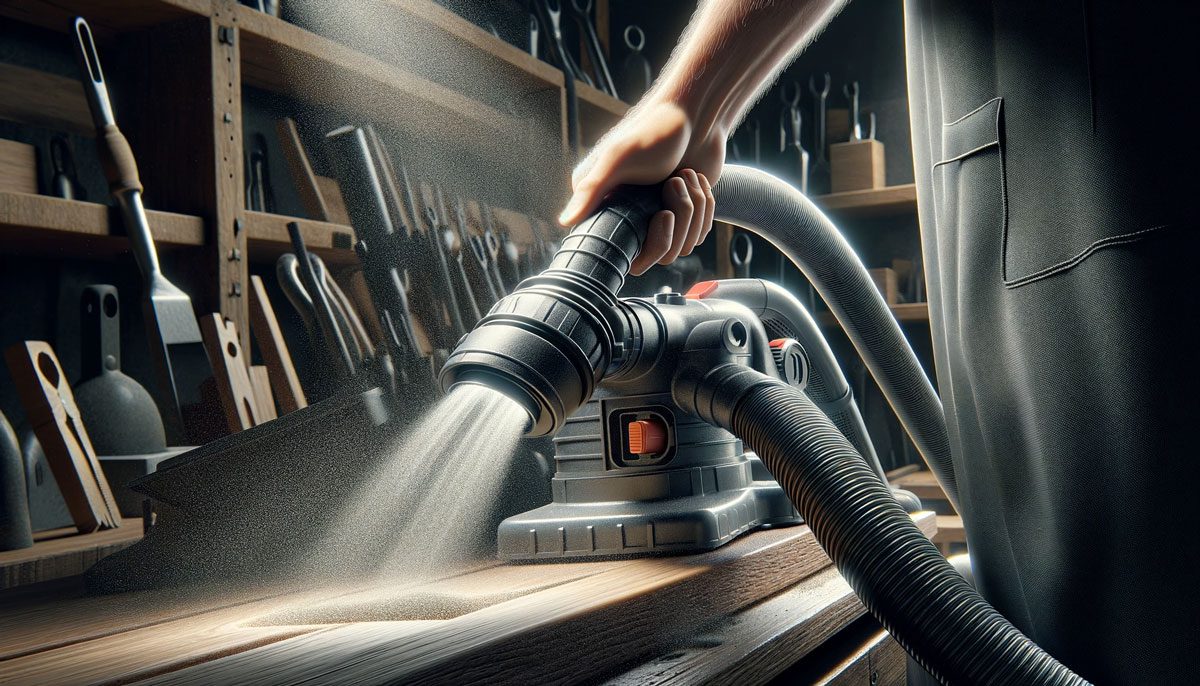
Why It Matters: Connecting the hose to the wrong port turns your vacuum into a blower, scattering dust everywhere.
Solution: Always double-check the hose connection. Ensure it’s attached to the vacuum inlet, not the blower port. This simple step is crucial for proper functioning.
2. Stay Empty, Stay Efficient
A full dust container is a common culprit in reducing a shop vac’s efficiency. When the container is brimming with debris, it loses its suction power, and the chances of dust blowing back into the air increase. Regularly emptying the dust container and wiping off any residual dust will ensure that your shop vac operates at its peak efficiency.
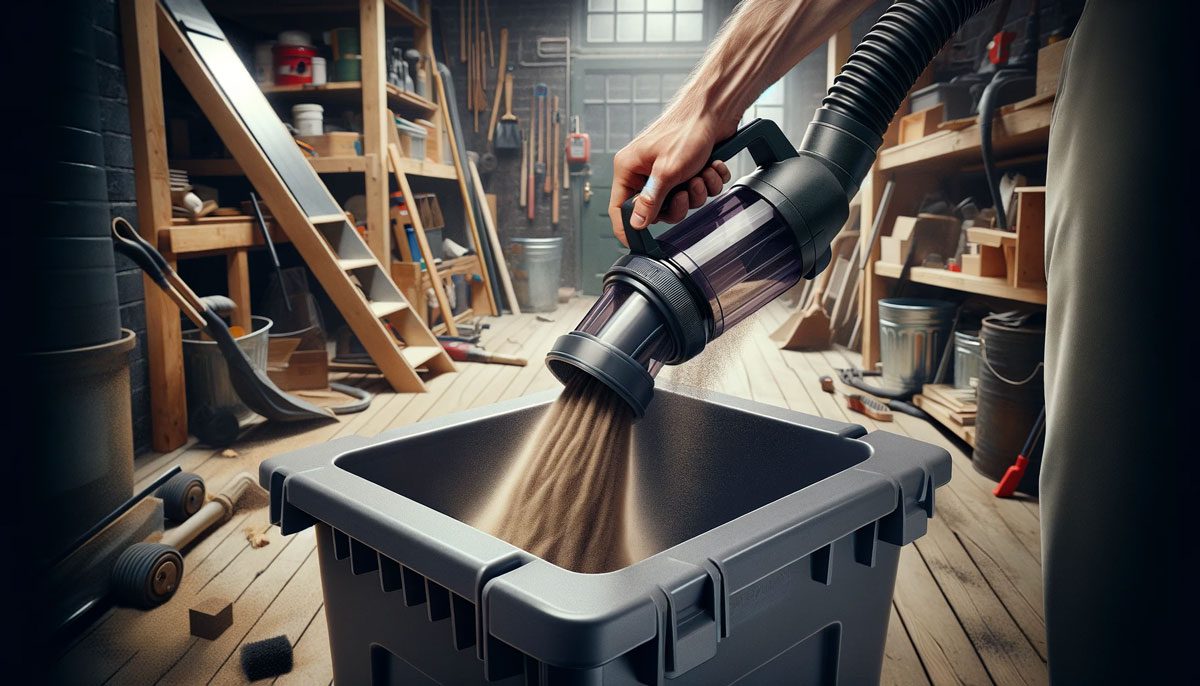
Importance of an Empty Container: A full dust container hampers suction power, leading to dust expulsion.
Best Practice: Empty the dust container regularly, especially after extensive use. A less full container means better suction and less dust escape.
3. Filter Maintenance: A Must-Do
The filter of your shop vac is like the heart of the machine. A dirty, clogged, or improperly installed filter will not only reduce suction power but can also lead to dust blowback. Regular cleaning of the filter, especially after heavy usage, and ensuring it’s correctly installed are key steps. If the filter is damaged, replacing it promptly will prevent dust from escaping back into the air. Filters are relatively easy to remove, clean, or replace, making this a manageable task for even the most novice users.
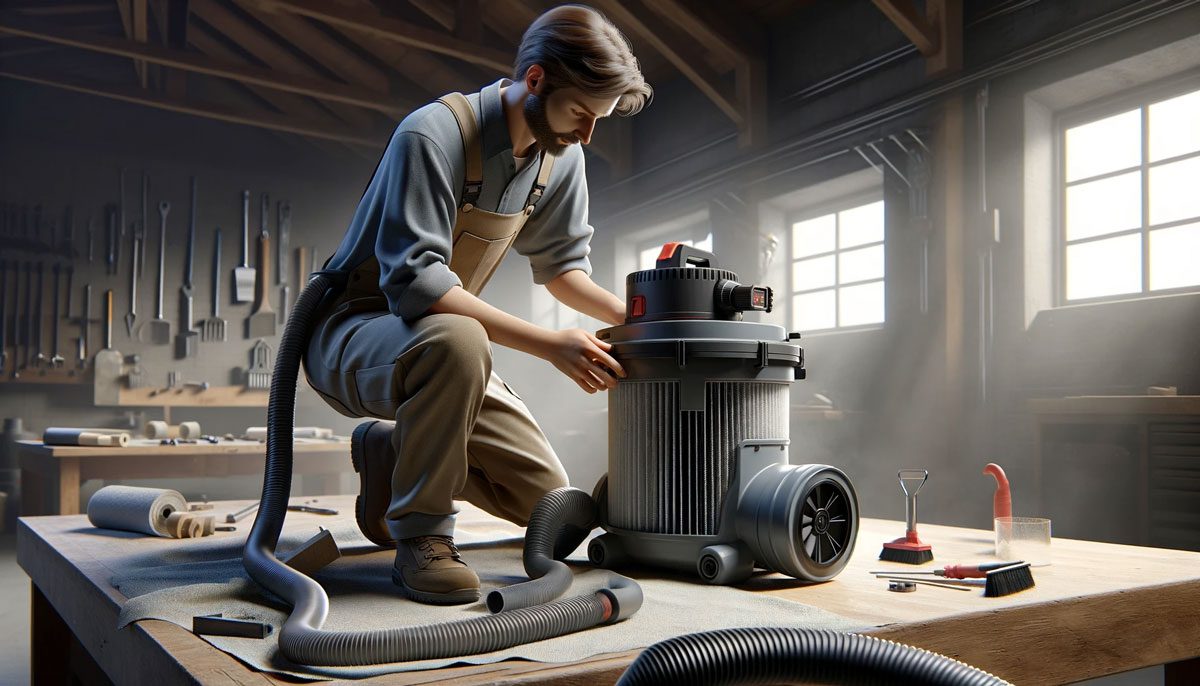
The Role of Filters: Filters are your first line of defense against dust blowback. A dirty or damaged filter is less effective.
Maintenance Tips: Regularly inspect and clean your filter. If it’s damaged or not fitting correctly, replace it immediately. This ensures your Shop Vac functions optimally and dust-free.
4. Upgrade to HEPA
For environments where fine dust is prevalent, upgrading to a HEPA-rated filter is a game-changer. HEPA (High-Efficiency Particulate Air) filters are designed to trap 99.97% of particles that are 0.3 microns in size or larger. This means they can capture finer dust particles that other filters might miss, providing a cleaner and healthier workspace.
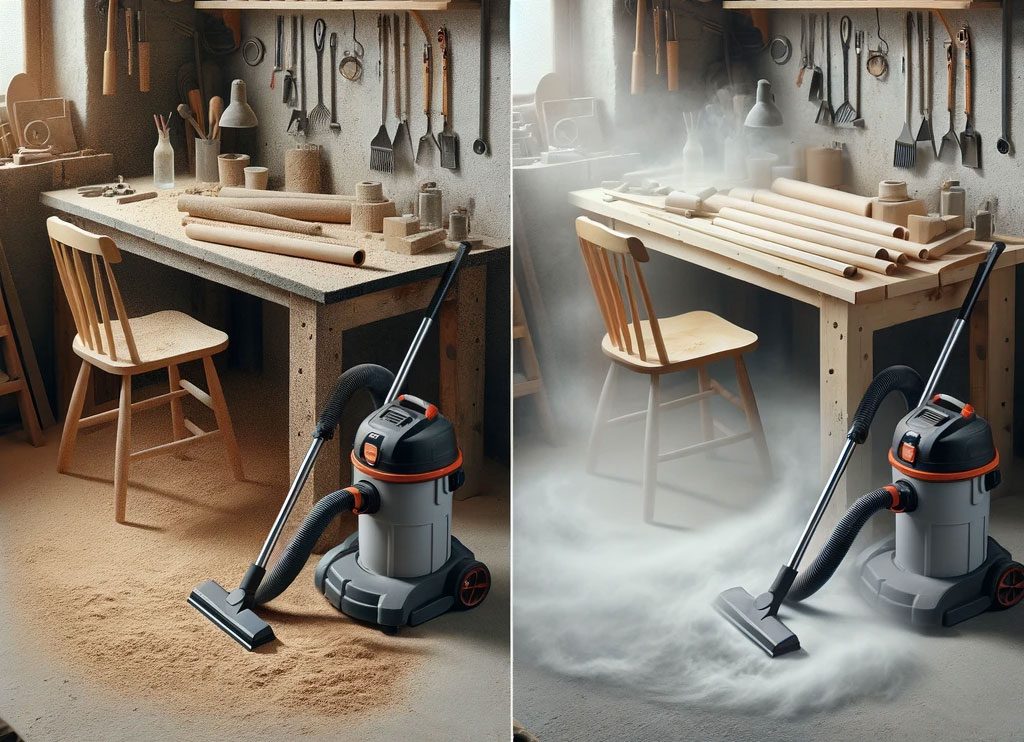
Why Upgrade: HEPA filters can trap significantly smaller dust particles than standard filters.
How to Upgrade: Choose a HEPA-rated filter compatible with your Shop Vac model. This upgrade is especially beneficial for those working with very fine dust.
5. Attachment Precision
Using the correct vacuum attachment for the specific material you’re cleaning up can significantly reduce the amount of dust blown out. Different attachments are designed for various types of debris and surfaces, ensuring more efficient pickup and less scattering of particles. For instance, a nozzle attachment designed for sawdust is more effective at picking up wood debris without spreading it around.
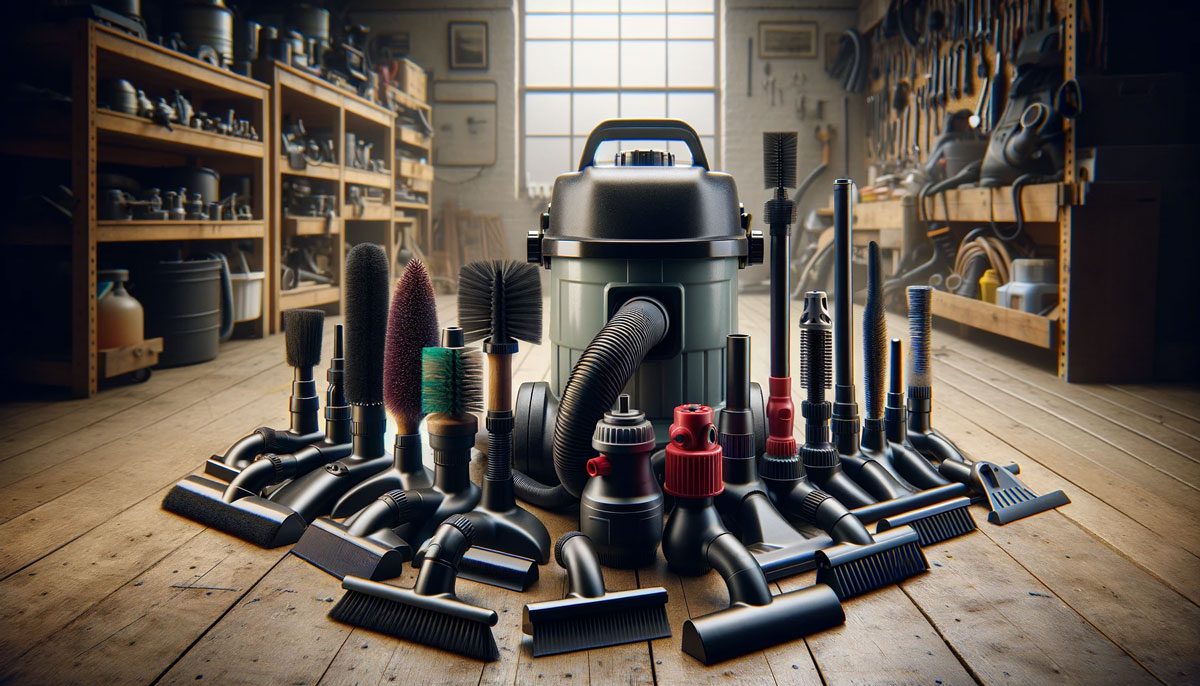
Choosing the Right Tools: Specific tasks require specific vacuum attachments.
Tip: Use attachments designed for the material you are cleaning up (like sawdust or drywall dust). The right attachment improves efficiency and reduces dust blowback.
6. Filter Bag: Your Secret Weapon
Installing a filter bag inside the Shop-Vac’s dust container can significantly reduce dust blowback. The bag acts as a pre-filter, capturing most of the dust and debris before it reaches the main filter. This not only improves air quality but also extends the life of the primary filter, making maintenance easier and less frequent.
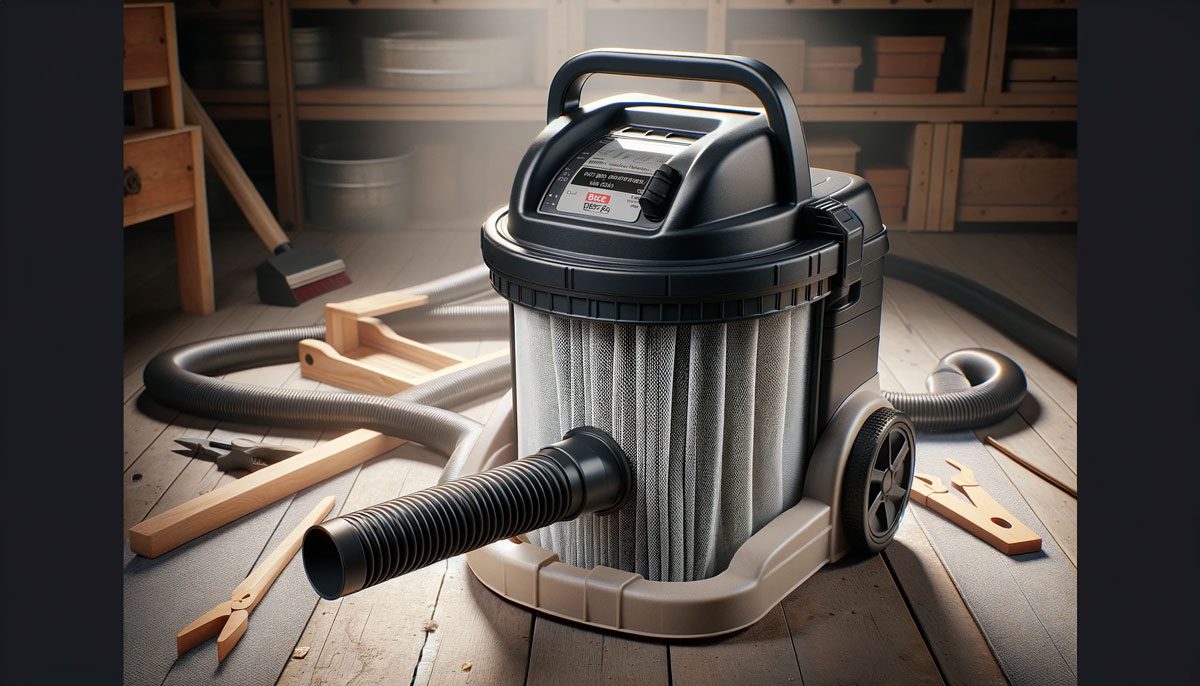
Extra Layer of Protection: A filter bag inside your Shop Vac can significantly reduce dust in the expelled air.
Installation: Install a compatible filter bag in the dust container. It acts as a pre-filter, trapping most dust before it reaches the main filter.
7. Seal Those Leaks
Leaks in the hose or connections of your shop vac can lead to decreased suction power and increased dust blowback. Regularly inspect your vacuum for any gaps, cracks, or loose connections. Sealing these leaks, either by tightening connections or using duct tape for minor hose damages, restores full suction power, ensuring that dust and debris are efficiently captured.
The Impact of Air Leaks: Leaks in the hose or connections decrease suction, causing dust blowout.
Fixing Leaks: Regularly inspect and promptly repair any leaks. Use strong tape or replace damaged parts to ensure an airtight system.
8. Regular Canister Care
Keeping an eye on the collection canister is essential. A canister that’s too full can block airflow and cause dust to be blown back out of the vacuum. It’s important to empty the canister regularly, particularly after substantial cleaning tasks, and ensure it’s never overfilled. For vacuums with clear canisters, this is a simple task as you can visually monitor the level of debris.
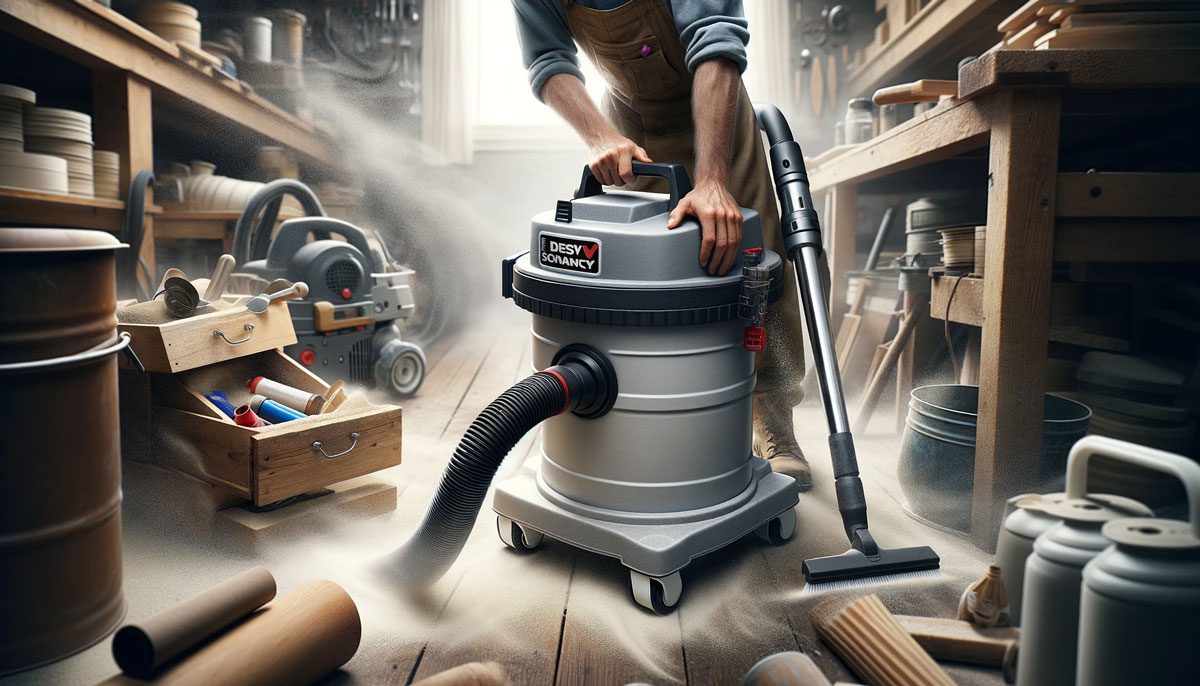
Consequences of Overfilling: An overfilled canister leads to reduced airflow and increased dust blowback.
Canister Management: Monitor the fill level and empty the canister before it gets too full. This practice keeps the airflow steady and dust contained.
9. Fine Dust? Go Finer!
For extremely fine particles like drywall dust, using a specialized dust bag is a smart move. These bags are designed with microporous fabric that traps fine dust particles, adding an extra layer of filtration. This is particularly useful in construction or renovation scenarios where fine particulate matter is common.
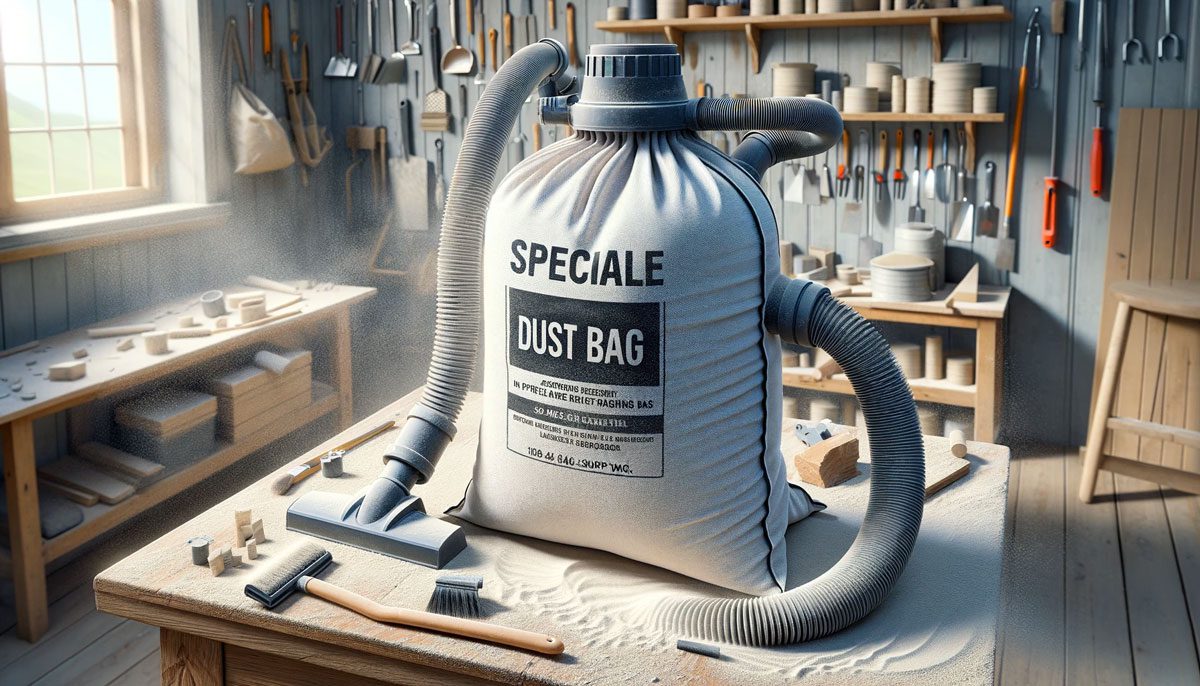
Special Cases for Fine Dust: Extra fine particles like drywall dust can slip through regular filters.
Solution: Use specialized dust bags for trapping these tiny particles. These bags are designed to fit within your Shop Vac, providing an additional layer of filtration that is particularly effective for ultra-fine dust.
10. Suction Pressure Matters
The amount of suction pressure your shop vac uses can impact its efficiency. Too much pressure can cause lighter dust particles to be blown out, while too little may not pick up heavier debris. Adjusting the suction based on the type of debris you’re cleaning is essential for optimal performance. This might require some trial and error, but finding the right balance will greatly enhance the effectiveness of your vacuum.

Balancing Suction Power: Incorrect suction pressure can either fail to pick up dust or cause it to scatter.
Adjustment Tips: Experiment with different suction settings for various tasks. Less suction can sometimes be more effective for lightweight dust, while heavier debris might require stronger suction.
11. High-Grade Filter for High-Efficiency
In scenarios where you’re dealing with very fine dust, consider using a higher-grade filter like the VF6000 or a HEPA filter. These filters are more adept at trapping small particles that standard filters might miss. While they might be a bit more expensive, they’re worth the investment, especially in environments where air quality is a concern, like woodworking shops or homes with allergies.
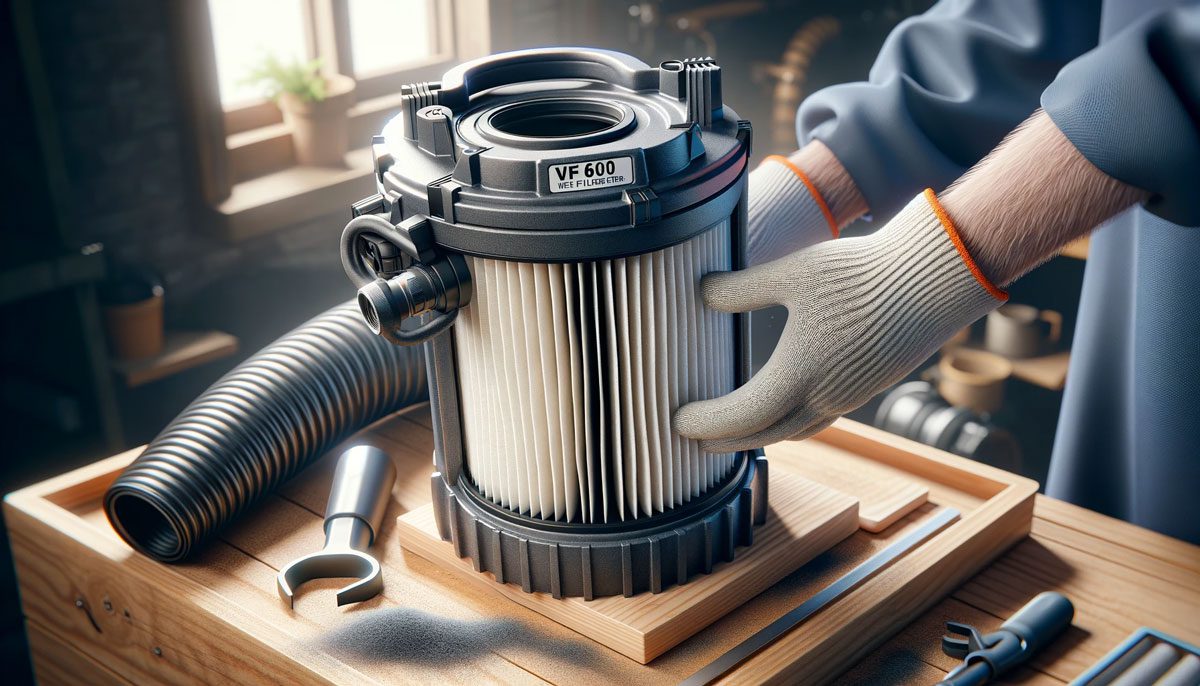
Upgrading Your Filter: Standard filters might not catch the finest particles, leading to dust blowback.
Choosing a Filter: Consider filters like the VF6000 or a HEPA model for more challenging dust types. These filters are more capable of trapping tiny particulates, thus improving the overall air quality in your workspace.
FAQ
Can I use a shop vac to vacuum water?
Yes, most shop vac models are designed as wet-dry vacs, which means they can handle both dry materials like dust and wet substances like water. However, it’s crucial to switch to a foam sleeve filter when dealing with liquids to protect the motor and maintain proper air circulation.
Why is my shop vac blowing dust back into the room?
This issue usually occurs when there’s a tear in the cartridge filter or if the collection bag is overfilled. Check for any tears or holes in the filter and replace it if necessary. Ensure that the collection bag isn’t too full and that the exhaust port isn’t blocked to prevent dust from being blown back into the room.
Can water in the tank cause my shop vac to blow dust?
Yes, water in the tank can affect the vacuum’s ability to properly filter dust. Water can cause clogging and reduce suction, leading to dust blowout. Always check for water or moisture in the tank before use.
How often should I troubleshoot and maintain my shop vac to prevent it from blowing dust?
Regular maintenance is key. Check and clean filters, inspect for holes or tears, and ensure all components like the motor and exhaust port are in good condition. Frequency of maintenance depends on how often you use your shop vac. For heavy use, check it after each job.
Are there specific accessories or attachments I should use for different materials like leaves, paint, or household dusting?
Yes, using the right accessories for different materials is crucial. For leaves, a wider nozzle is effective, while a brush attachment works well for dusting in the house. Always follow the manufacturer’s instructions when choosing accessories for specific jobs.
Conclusion
Managing dust in your workspace is crucial for both efficiency and health. By implementing these 11 strategies, from proper hose connection to filter upgrades, you can significantly reduce dust blowback from your Shop Vac. Regular maintenance, appropriate attachments, and strategic upgrades play a vital role in ensuring a cleaner, safer, and more productive environment. Remember, the key to a dust-free space lies in understanding your equipment and adapting your cleaning methods to suit the nature of your work.
Further Reading
- For those seeking to dive deeper into the world of high-efficiency, low-noise cleanup solutions, our comprehensive guide on the Best Quiet Shop Vac models offers in-depth reviews and expert recommendations to ensure you find the perfect tool for your needs.

